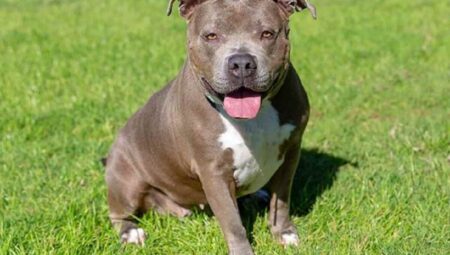Dog daycare can be a fantastic option for pet owners who want their furry companions to socialize, exercise, and receive attention and care while they’re away. However, preparing your dog for daycare involves several essential steps to ensure a positive experience for both your pet and the daycare facility. Here’s a comprehensive guide on how to prepare for dog daycare:
How to prepare for dog daycare?
1. Research and Pick the Right Office
Lead exhaustive exploration to find a trustworthy and reasonable childcare place for your canine. Search for offices with experienced staff, positive audits, clean conditions, and fitting security measures.
Plan a visit to the childcare place to notice the offices, interface with staff, and survey the general environment.
2. Guarantee Inoculations and Wellbeing Necessities
Guarantee your canine is fully informed regarding inoculations expected by the childcare office. Inoculations normally incorporate rabies, sickness, parvovirus, and Bordetella.
Get a wellbeing declaration from your veterinarian affirming your canine’s great wellbeing and independence from infectious sicknesses.
3. Mingle Your Canine
Before childcare, continuously acquaint your canine with different group environments, different canines, and individuals to assist them with feeling more good and certain about social scenes.
Practice positive cooperations with different canines to guarantee your pet is cordial and polite in a gathering climate.
4. Acclimate Your Canine with Schedules
Assist your canine with becoming acclimated with schedules that impersonate the childcare plan, for example, feast times, recesses, and rest periods.
Work on abandoning your canine for brief periods to decrease fearing abandonment and adjust them to being away from you.
5. Essential Acquiescence Preparing
Guarantee your canine answers essential orders like “sit,” “remain,” and “come.” This assists childcare with staffing deal with the gathering and guarantees your canine’s wellbeing.
6. Get ready Vital Supplies
Give the childcare every single important inventory, including food, treats, meds (if any), immunization records, and crisis contact data.
Name your canine’s things plainly to keep away from disarray.
7. Preliminary Visit
Consider a preliminary visit or half-day at the childcare community to survey how your canine connects with different canines and staff. This adapts your pet to the climate before an entire day stay.
8. Speak with Childcare Staff
Impart a particular conduct qualities, dietary limitations, wellbeing concerns, or inclinations your canine has to the childcare staff. Clear correspondence guarantees your canine’s requirements are met.
9. Uplifting feedback and Support
Empower and adulate your canine for positive way of behaving during childcare visits. Encouraging feedback builds up acceptable conduct and a positive relationship with the childcare.
Setting up your canine for childcare includes insightful preparation, socialization, wellbeing prerequisites, and viable correspondence with the childcare office. By making these strides, you can guarantee that your dearest pet has a protected, charming, and improving involvement with canine childcare.

How to choose the right dog daycare for my dog?
Selecting the right dog daycare for your furry friend involves careful consideration and research. Here are essential steps to help you choose the most suitable daycare facility:
1. Research and Recommendations:
- Start by researching daycare facilities in your area. Seek recommendations from friends, family, veterinarians, or local pet communities.
- Utilize online resources, read reviews, and visit websites of different daycares to gather information about their services, facilities, and policies.
2. Visit and Assess the Facility:
- Schedule visits to potential daycare centers. Observe the facility’s cleanliness, safety measures, and overall environment.
- Pay attention to the play areas, fencing, ventilation, and whether they have separate spaces for different-sized dogs or different temperaments.
3. Evaluate Staff Qualifications and Experience:
- Inquire about the qualifications and experience of the daycare staff. A reputable facility employs trained professionals who understand dog behavior, first aid, and emergency protocols.
- Ensure staff-to-dog ratios are adequate for proper supervision and care.
4. Assess Safety Measures:
- Check for safety protocols in place, including secure fencing, emergency plans, and veterinary access in case of any health concerns or accidents.
- Ensure the facility requires up-to-date vaccinations for all dogs to prevent the spread of diseases.
5. Understand Daily Activities and Exercise:
- Inquire about the daily routine and activities provided for the dogs. A good daycare should offer structured playtime, socialization, rest periods, and adequate exercise to suit your dog’s needs.
6. Communication and Transparency:
- Choose a daycare that maintains open communication. They should be willing to provide updates on your dog’s activities, behavior, and any concerns that may arise during their stay.
- Clear policies regarding fees, hours of operation, and any additional services should be transparently communicated.
7. Trial Period and Observation:
- Consider a trial period for your dog at the daycare facility. This allows you to observe how your dog interacts with other dogs and staff, and how comfortable they are in the environment.
8. Trust Your Instincts:
- Trust your instincts and observe how the staff interacts with the dogs. A nurturing, attentive, and caring environment is crucial for your dog’s well-being.
9. Special Needs Consideration:
- If your dog has special needs or requires specific care, ensure the daycare can accommodate these requirements. This could include medical needs, dietary restrictions, or behavioral considerations.
Choosing the right dog daycare involves thorough research, facility assessments, and a keen understanding of your dog’s needs. By considering factors like safety, staff expertise, activities offered, and clear communication, you can find a daycare that provides a safe, enjoyable, and enriching experience for your beloved pet.
What to expect at dog daycare?
When taking your dog to daycare, here’s what you can generally expect:
Socialization Opportunities:
- Dogs get the chance to interact and play with other dogs in a supervised environment. This socialization helps them develop better social skills and can reduce behavioral issues related to isolation or lack of exposure to other dogs.
Structured Activities:
- Daycare centers often offer structured activities to keep dogs engaged and mentally stimulated. These activities may include group play, games, toys, and even basic training sessions conducted by experienced staff.
Supervision and Safety Measures:
- Trained staff members closely monitor the dogs to ensure their safety and well-being. They intervene if any conflicts arise between dogs and manage play to maintain a safe and harmonious environment.
Exercise and Physical Activity:
- Daycare provides ample opportunities for dogs to exercise and burn off energy through play, walks, or outdoor activities in designated play areas. This helps in keeping them physically fit and reduces boredom.
Rest and Relaxation Time:
- Daycare facilities usually have scheduled rest periods where dogs can take breaks, relax, or nap in a comfortable, quiet area. This helps prevent overstimulation and ensures they have a chance to recharge.
Regular Feeding and Hydration:
- Daycare centers often accommodate feeding schedules provided by pet owners. They ensure dogs have access to fresh water throughout the day to stay hydrated.
Communication with Pet Owners:
- Many daycare facilities offer updates on your dog’s activities and behavior during their stay. They communicate any concerns or notable behaviors observed while your pet is at the facility.
Learning and Training Opportunities:
- Some daycares incorporate basic training or reinforcement of commands during playtime. This can reinforce good behavior and manners in a social setting.
Clean and Safe Environment:
- Reputable daycares maintain cleanliness by regularly sanitizing play areas, providing clean bedding, and ensuring a hygienic environment for all dogs.
Special Services and Add-ons:
- Some daycare centers may offer additional services like grooming, individual play sessions, or specialized care for dogs with specific needs. These services might come at an extra cost.
Dog daycare provides a supervised, interactive, and stimulating environment for dogs. Expect your pet to engage in socialization, play, exercise, and rest while being cared for by trained professionals. The overall experience aims to keep dogs happy, active, and well-adjusted.




